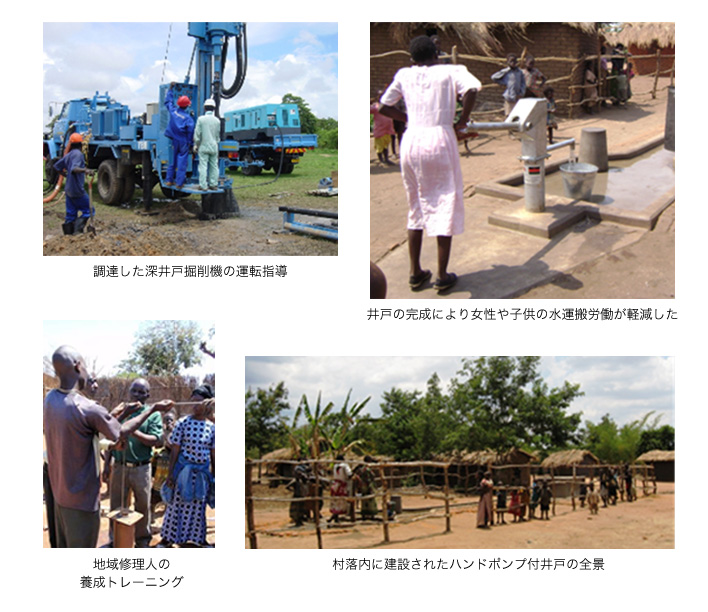Project for groundwater development in Lilongwe West, Republic of Malawi
2009.3.31

In Malawi, one of the poorest countries in Africa, 85% of the population were farmers living in rural areas. As of 2004, more than 25% of the rural population relied on unhygienic and unstable water sources, such as shallow dug wells and local ponds, forcing women and children to engage in the time-consuming labour of water transportation. The Government of Malawi had been active in the construction of water supply facilities to achieve the UN millennium development goal, which called for halving of the proportion of people without access to safe drinking water by 2015. It made a request to the Government of Japan for the provision of grant aid cooperation for the construction of boreholes in two areas of the Lilongwe District where more than 60% of the local population did not have access to a safe water source.
Under the project, it was decided that 296 boreholes would be constructed in these two areas to improve the water supply ratio from 39% to 49% to benefit some 132,000 people. Support work was also conducted to educate local residents and to train borehole repairers so that local borehole users themselves could independently operate and maintain the boreholes in a sustainable manner. At the same time, a set of drilling equipment used for borehole construction was procured as part of the project to contribute to the capacity building of the government to respond to further groundwater development demands.
| Work title | Rural water supply project with grant aid cooperation |
| Location | Kalolo and Khongoni in the Lilongwe District, Central Region, Malawi |
| Duration | October, 2004 to March, 2009 |
| Implementing bodies | JICA and the Government of Malawi |
| Project outline | Construction of boreholes (296 sites); procurement of equipment (drilling machinery and support vehicles); support for educational activities for borehole users |

 Eight-Japan Engineering Consultants Inc.
Eight-Japan Engineering Consultants Inc.- Case
- Topics
- Project for groundwater development in Lilongwe West, Republic of Malawi
